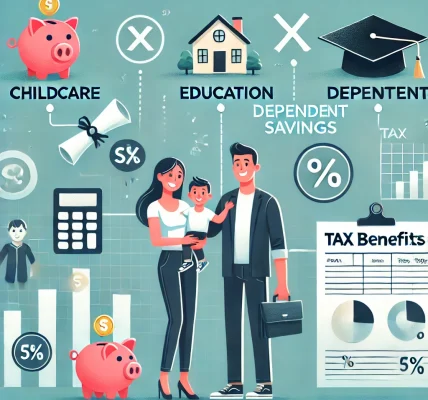Introduction
Filing income tax returns (ITR) is a crucial responsibility for every taxpayer. However, many individuals and businesses make common mistakes that lead to penalties, unnecessary tax liabilities, or even scrutiny from tax authorities. Avoiding these errors ensures compliance, saves money, and reduces stress during tax season.
This comprehensive guide highlights the most common tax filing mistakes and practical ways to avoid them to help you file your returns correctly and efficiently.
1. Incorrect Personal Information
Many taxpayers make errors in basic details such as name, PAN (Permanent Account Number), Aadhaar number, or bank account details. Mistakes in these fields can lead to refund delays or rejection of your tax return.
How to Avoid It:
- Double-check all personal details before submitting your return.
- Ensure that your PAN and Aadhaar are linked (mandatory for ITR filing in India).
- Verify bank account details to avoid issues with tax refunds.
2. Choosing the Wrong ITR Form
Filing your return using the incorrect ITR form can lead to defective return notices from the Income Tax Department.
How to Avoid It:
- Identify the correct ITR form based on your income source (salaried, business, capital gains, etc.).
- Use the online e-filing portal, which suggests the right form based on your income details.
- If unsure, consult a tax professional.
3. Failing to Report All Income Sources
Many taxpayers only report their salary income and forget other sources such as interest income, freelance earnings, rental income, and capital gains. Not reporting all income can lead to penalties.
How to Avoid It:
- Collect all necessary financial statements (bank statements, Form 16, Form 26AS, AIS, TIS, etc.).
- Cross-check with Form 26AS (Tax Credit Statement) to ensure all income is accounted for.
- Declare income from all sources, even if tax is already deducted (TDS).
4. Not Claiming Eligible Deductions and Exemptions
Many taxpayers miss out on deductions under Sections 80C, 80D, and 80G or fail to claim HRA (House Rent Allowance) and LTA (Leave Travel Allowance).
How to Avoid It:
- Keep track of all eligible deductions throughout the year.
- Maintain receipts for investments, insurance premiums, medical expenses, and donations.
- Use an ITR filing tool or consult a tax expert to maximize deductions.
5. Errors in Claiming Deductions
Incorrectly claiming deductions, such as submitting fake or inflated expenses, can trigger scrutiny from the tax department.
How to Avoid It:
- Ensure that deductions are valid and supported by documents.
- Keep records of expenses related to tax-saving investments and medical bills.
- Cross-verify deductions with your financial documents before filing.
6. Mismatched Income and TDS Details
Discrepancies between the income reported in your tax return and the details available in Form 26AS or AIS (Annual Information Statement) can lead to tax notices.
How to Avoid It:
- Download and review Form 26AS and AIS before filing your return.
- Ensure that the TDS deducted by your employer, banks, or other deductors matches your reported income.
- Contact the deductor if you find any discrepancies.
7. Not Paying Advance Tax or Self-Assessment Tax
If your tax liability exceeds ₹10,000 in a financial year (excluding TDS), you are required to pay advance tax in installments. Failing to do so can result in interest penalties under Sections 234B and 234C.
How to Avoid It:
- Estimate your tax liability if you earn income from freelancing, business, or capital gains.
- Pay advance tax quarterly (June 15, September 15, December 15, March 15).
- Use the Self-Assessment Tax option before filing the return if there is any pending tax liability.
8. Not Verifying the ITR After Filing
Filing your tax return alone is not enough. It must be verified within 30 days (earlier 120 days) of submission, failing which the return is considered invalid.
How to Avoid It:
- Verify your ITR immediately using Aadhaar OTP, net banking, or a Digital Signature Certificate (DSC).
- Alternatively, send a signed physical copy of the ITR-V (acknowledgment) to the Income Tax Department.
9. Filing Returns After the Due Date
Late filing attracts penalties, interest, and the loss of certain deductions and exemptions.
How to Avoid It:
- Mark the tax filing due date on your calendar (July 31 for individuals and October 31 for businesses requiring audit).
- File well in advance to avoid last-minute technical glitches.
- If unable to file on time, file a belated return before December 31 (with late fees).
10. Ignoring Rectification or Revised Returns
If you discover a mistake after filing, you can file a revised return under Section 139(5). Ignoring errors can lead to tax notices.
How to Avoid It:
- Regularly review your filed ITR.
- File a revised return immediately if you notice any errors.
- Use the online rectification option to correct mistakes notified by the tax department.
Conclusion
Filing your tax return accurately ensures compliance, prevents penalties, and allows you to claim the maximum benefits available. By avoiding these common mistakes and following best practices, you can make your tax filing process smoother and stress-free.




